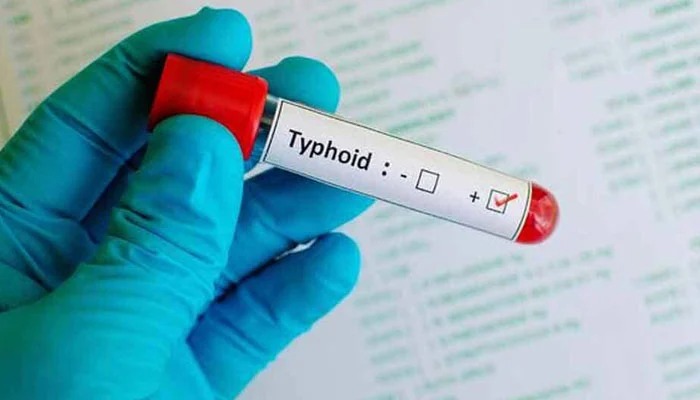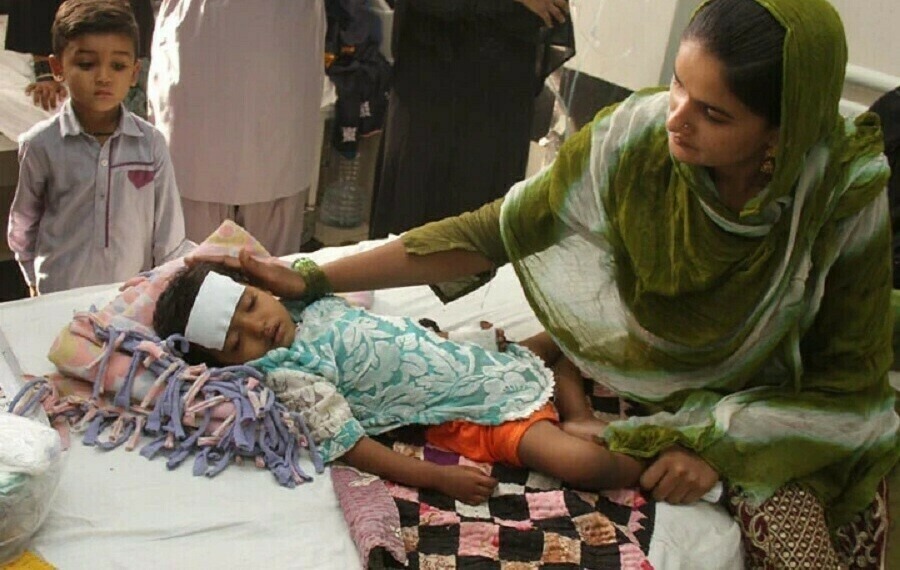The number of cases of a new strain of typhoid, known as XDR, is rapidly soaring in Sindh, including the populous city of Karachi.
Alarming Statistics:
According to a report released by the National Institute of Child Health (NICH), the month of April witnessed the highest recorded number of cases, with a staggering total of 99 reported instances. The NICH report reveals that during the first four months of this year, a total of 335 cases of typhoid XDR were reported. The month-by-month breakdown shows 63 cases in January, 89 cases in February, 84 cases in March, and the highest number of 99 cases in April. This surge in cases is a cause for concern among health experts and authorities.
Transmission and Prevention:
Typhoid is primarily transmitted through contaminated water, and citizens are urged to boil water before consumption to minimize the risk of infection. Experts are advising citizens to exercise caution in light of this outbreak. Additionally, health professionals have highlighted that the indiscriminate use of antibiotics and self-medication are contributing to the spread of typhoid XDR. They emphasize that citizens should avoid these practices to mitigate the worsening situation.

The Diminishing Efficacy of Antibiotics:
Compounding the problem, antibiotics, which have traditionally been effective in treating typhoid, are proving to be ineffective against this new strain. Health experts have added their concerns over the diminishing efficacy of antibiotics in combating the XDR variant of the disease. This is a significant development, as XDR typhoid is resistant to multiple antibiotics, making it more challenging to treat and control.
The Role of Genetic Mutation:
XDR typhoid is caused by a strain of Salmonella Typhi that has acquired genetic mutations, allowing it to resist common antibiotics. This genetic mutation is believed to have originated from excessive and inappropriate use of antibiotics, both in clinical settings and through self-medication. The widespread availability and misuse of antibiotics have contributed to the emergence and spread of this highly drug-resistant strain.
Implications for Public Health:
The rise of typhoid XDR in Sindh has far-reaching implications for public health. If left unchecked, it has the potential to cause severe illness and even death, particularly in vulnerable populations such as children and the elderly. The increasing number of cases also puts a strain on the healthcare system, making it challenging to provide adequate care to all affected individuals.
The Need for Effective Surveillance and Control Measures:
To combat the rising cases of typhoid XDR, it is crucial to strengthen surveillance systems and improve diagnostic capabilities. Early detection and prompt treatment of cases can help prevent the further spread of the disease. Public health authorities should work closely with healthcare providers to ensure accurate diagnosis and appropriate treatment for typhoid cases.

Furthermore, there is a need for stricter regulations on the use and sale of antibiotics. Education and awareness campaigns should be conducted to educate the public about the proper use of antibiotics and the dangers of self-medication. Encouraging responsible antibiotic use can help reduce the development and spread of drug-resistant strains.
International Collaboration and Support:
Given the global nature of infectious diseases, international collaboration and support are essential in addressing the challenge of typhoid XDR. Governments, non-governmental organizations, and international health agencies should work together to share information, expertise, and resources to control the spread of the disease. This can include assistance in strengthening healthcare systems, improving access to clean water, and promoting hygiene practices in affected regions.
Read more: Heavy Rain and Hailstorm Claim Nine Lives in Hyderabad and Surrounding Areas of Sindh
The rising cases of typhoid XDR in Sindh, particularly in Karachi, are a cause for alarm. The rapid spread of this drug-resistant strain and its diminishing response to traditional antibiotics pose significant challenges to public health. To effectively combat this outbreak, a comprehensive approach is needed, including improved surveillance, stricter regulations on antibiotic use, and international collaboration. By taking swift and coordinated action, it is possible to mitigate the impact of typhoid XDR and protect the health and well-being of the population in Sindh.



